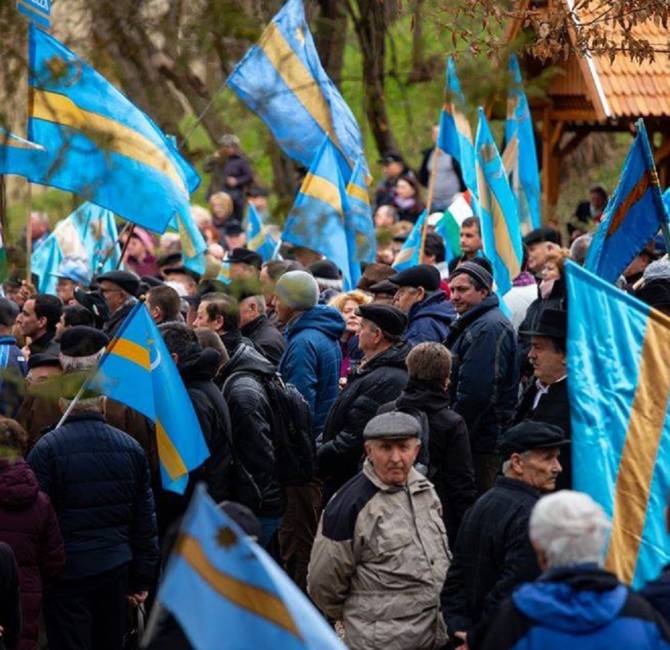Belarus/Poland – Poland may close its last remaining border crossings with Belarus as a retaliatory measure, according to comments made by a state secretary in the Interior Ministry, Maciej Wąsik, on Polish television channel Polsat News.
“For us, [Belarus] is a small skylight, while for it, Poland is a window to the world”, said Wąsik. The border crossings with Poland are important for the Belarusian economy and for Lukashenko’s support among the population, the Polish state secretary stressed. “We will have no hesitation. If necessary, we will also speak out on behalf of the Polish minority”, he warned, explaining that Warsaw is “waiting to see Minsk’s next move” and that the situation could very well evolve in a more positive direction if the Belarusian authorities demonstrate that this is what they want.
These statements were made just after a Belarusian court sentenced Svetlana Tikhanovskaya, Alexander Lukashenko’s main opponent in the August 2020 presidential election, to 15 years in prison in absentia in early March. In August 2020, allegations of electoral fraud triggered a wave of demonstrations in the country and a first set of sanctions by the European Union. These were mainly individual sanctions aimed at those considered responsible for rigging the election and the brutal repression that followed.
—
See our interview with Belarusian journalist Inna Kochetkova:
“Even Russia does not get close to the level of repression we have in Belarus”, says Belarusian journalist” (26/03/2022)
—
It is often forgotten that the real sanctions, those targeting the economy and banning Belarus’s national airline from EU airspace, were agreed only after the hijacking of a European civilian aircraft in May 2021 by the Belarusian authorities. They forced a Ryanair flight from Athens to Vilnius to land in Minsk in order to arrest an opponent who was on board. The hijacked plane happened to be registered in Poland.
Following the new sanctions triggered by that act of piracy, Alexander Lukashenko’s regime, in order to “punish” the EU and in particular Poland and Lithuania, which had pushed for sanctions the hardest, began to bring in migrants from the Middle East and Africa en masse, enticing them to try and cross the borders of Poland and Lithuania illegally. This in turn led both countries to build a fence along their border with Belarus, modelled after the one built by Hungary during the great migration crisis of 2015 to stop migrants on the Balkan route. This development left Belarus still more isolated and more dependent on Russian support than ever. Moscow was suspected from the beginning by Warsaw and Vilnius of being behind the use of the migratory weapon, in what the two EU capitals consider to have been an act of hybrid war.
The involvement of Belarus in the Russian military offensive launched on 24 February 2022 against Ukraine, the failed offensive against the Ukrainian capital Kyiv having started from Belarusian territory, has caused Belarus to be targeted alongside Russia by successive sanction packages adopted by the EU. Poland and Lithuania have again been among the countries pushing for the toughest sanctions since the beginning of the Kremlin’s war against Ukraine, which has further exacerbated relations with the regime in Minsk.
On 9 February, Polish Interior Minister Mariusz Kamiński announced the closure of the Bobrowniki border crossing at the Belarusian border to cargo transport. Officially, it was a retaliatory measure against restrictions on Polish lorries in Belarus, but the decision came the day after a court in Hrodna (Grodno in Polish) sentenced Andrzej Poczobut, a Belarusian journalist and active member of the Polish minority.
—
More about the repression against the Polish minority in Belarus:
“Why the Lukashenko regime is targeting the Polish minority” (1/04/2021)
—
Poczobut was sentenced to 8 years in a penal colony for incitement to hatred, calling for sanctions against Belarus, acting to the detriment of Belarus, and rehabilitation of Nazism. In Belarus as in Russia, Soviet historiography is still followed, and mentioning the German–Soviet alliance of 1939–41 or showing in a positive light the Polish partisans’ struggle against the Soviet occupier and the communist regime after the Second World War is considered in itself a rehabilitation or glorification of Nazism. Thus, when representatives of the Polish minority in Belarus commemorate the “cursed soldiers” (Polish partisans who continued to fight until the 1950s) or even the AK, the Polish Home Army that fought the Germans but whose members were arrested, deported and/or executed by the Red Army upon the “liberation” of Poland, they face heavy prison sentences.
Since the beginning of the war in Ukraine, Belarus has also sent bulldozers several times to destroy cemeteries where AK soldiers are buried, which is another reason mentioned a few days ago by State Secretary Maciej Wąsik to threaten the closure of all border crossings with Belarus.
Andrzej Poczobut had been arrested in March 2021 along with several other representatives of the Polish minority, including Andżelika Borys, the chairwoman of the Union of Poles in Belarus (ZPB, for Związek Polaków na Białorusi), which has been in the crosshairs of Lukashenko’s regime since the first crackdowns targeting the organisation in 2005.
A month after Poczobut, not only the Belarusian opposition leader Svetlana Tikhanovskaya was sentenced in absentia (she is currently in exile in Lithuania), but also four other opponents, including Pavel Latushka, a former culture minister and former Belarusian ambassador to Poland from 2002 to 2008 (and later to France, from 2012 to 2019), who was sentenced in the same way to 18 years in a prison colony.
“I tried to contact my lawyer, but he refused to communicate. I don’t know what the basis [of my conviction] was, I have no information about what was in the investigation, what was in the indictment, I don’t know the witnesses, I don’t know the evidence”, Latushka said on 6 March on Polish television TVN24, making clear that if Poland had not offered him asylum in September 2020, he would be in prison today. However, Latushka said he feared for his life, even in Poland, and he said he had received threats: “I get signals that they want to murder me, that they want to kidnap me, take me out of Poland in a trunk. They even made a special film supposedly for this occasion, showing how they are taking me to Minsk. ”
On Friday, a Minsk court also sentenced a human rights defender and 2022 Nobel Peace Prize winner, Ales Bialiatski, to ten years in prison for “smuggling” and “financing demonstrations”. Bialiatski is a former Minsk city councillor (1991–1996) who founded the Viasna (Spring) organization in 1996 to help victims of the Lukashenko regime’s abuses. He previously served time in prison from 2011 to 2014 for alleged tax fraud. In 2012, he received the Lech Wałęsa Prize, a Polish award created in 2008 on the 25th anniversary of the award of the Nobel Peace Prize to the leader of the Solidarity trade union, Lech Wałęsa, during times of communist repressions in Poland.




